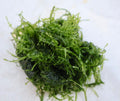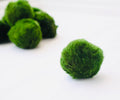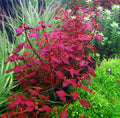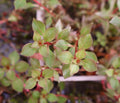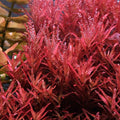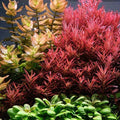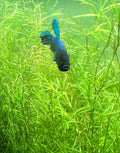Is Guppy Grass Good for Guppies?
Is Guppy Grass Good for Guppies?
If you have guppies in your aquarium or freshwater tank it can be difficult to set up an ideal environment for them. Before you decide on anything it is necessary to consider multiple factors like the filter system, oxygen pipe, temperature of the water and most importantly aquatic plants.
Guppies are one of the most common and popular aquatic animals. Guppies or guppy fish are great for a new aquarist as they are easy to maintain.
Guppies are also known as rainbow or millionfish. And guppy grass as their best friend. As the name suggests guppy grass provides an excellent environment inside the tank for guppies to hide, rest, breed etc.
In addition, guppy grass is an excellent choice for community tanks or aquariums. And if you have a freshwater tank at home with guppies and other adult fishes in it you must consider buying guppy grass!
Now that you have some basic information about guppy grass, keep on reading to know why you must consider buying them and how it is beneficial for the guppies in your aquarium or freshwater tank!
Why Should You Consider Keeping Guppy Grass in Your Aquarium if You Have Guppies?
You must have a lot of questions in your mind like whether it is safe to keep guppy grass, whether it will provide an ideal habitat for the guppies etc. Most people don’t know but it requires a little bit of practice and correct knowledge to set up an ideal aquatic environment for the guppies. Below given are some of the reasons that help you decide whether you should keep a guppy plant with your guppies:
- Provides a suitable environment for guppies: Guppies absolutely love plants in their aquariums. As well as providing a realistic mimic of the natural habitat, the guppy grass also improves water quality and increases oxygen levels which is important. Guppies also use them to hide from adult fish and cover themselves while growing up.
- Guppy grass is easy to maintain: Another reason you must consider getting guppy grass for guppies is that you do not have to spend a lot of time looking after and taking care of these aquatic plants. Guppy grass is a fast-growing aquatic plant that helps in keeping the environment clean inside the tank. In addition, it also cleans the buildup of fish waste and fish food.
- Helps in cleaning the harmful toxins inside the aquarium: One thing that every aquarist should take care of while keeping guppies is the balanced environment of the freshwater tank. And to make sure you do it effectively you don't have to put in a lot of effort. You can simply put guppy grass in your aquarium. Guppy grass removes harmful toxins like heavy metals, nitrite, ammonia, and other waste.
- Provides shelter to guppies and other small fishes: Another advantage of this plant is that they are not only dense in nature but also provides shelter to many small fishes apart from the guppies. If you have various kinds of fish in your aquarium then having guppy grass will provide a safe space for small calm fishes.
- Guppy grass prevents dead zones and produces oxygen: Hypoxia (low oxygen levels in water) is more commonly known as the "dead zone." Sometimes oxygen can not reach all parts of the aquarium or freshwater tank and it creates a dead zone which leads to the death of many fishes. Keeping guppy grass will help reduce this risk because they produce oxygen that prevents dead zones. And guppies and other fishes can easily live inside the tank.
Some Tips to Keep in Mind if You Have Guppy Grass in Your Aquarium with Guppies
Here are some easy-to-follow tips that will help you create a perfect environment for your guppies if you have guppy grass in your freshwater tank:
- Make sure to regularly change the water for healthy growth and propagation of guppy grass.
- Having good fertilizer is a must for guppies and this plant to stay healthy.
- You have to take care of routine pruning and removal to control their growth..
All in all guppy grass is great for guppies and they should be kept together in the aquarium. We hope that after reading the above-mentioned information you have made up your mind whether you should keep these two together or not.



